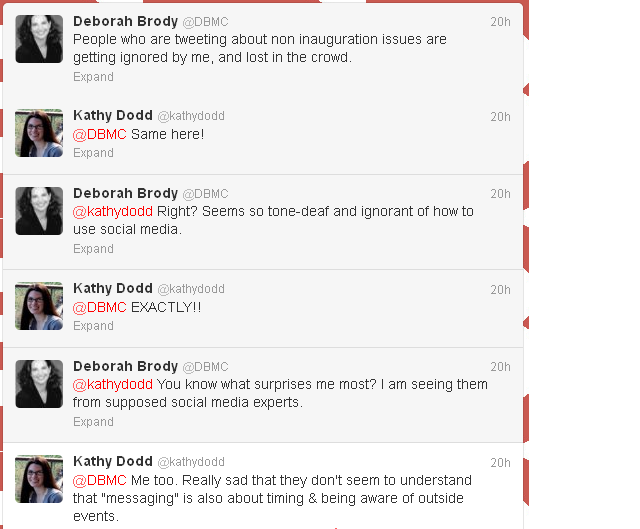3 guaranteed ways to lose business fast
Sometimes you see stuff that makes you shake your head (or slap your forehead) and wonder how some people manage to stay afloat.

Based on personal experiences in the past week alone, here are three guaranteed ways to lose business fast:
1. If you have a website, make sure it is lacking relevant information.
Sure, every business should have a website, but not any website will do. Websites should be useful if you want them to support your business.
I was looking for a restaurant in which to grab some lunch. I found several and checked out their websites. One place had a website that did not have the following: hours of operation, location, menu. Guess what? I did not have lunch there.
2. Make it very difficult to do business with you (and easier to do it with competitors)
How many hoops do you want your potential customers to jump through? Five? Ten? Perhaps you are putting a few too many obstacles for your customers to climb through to get to you. These obstacles can be things like too many forms to fill, rules, not providing services your competitors provide, and so forth.
I wanted to get some catering for my workshop last week. I usually order coffee and pastries from a national chain, but that place was not nearby the location last week. I thought I would patronize a local place, so I checked it out. First, it took ONE week to get an answer back. Then, I was told that coffee could be provided, but the coffee urn would have a $100 deposit (meanwhile, almost all coffee chains have a portable cardboard coffee box that they don’t have to charge a deposit for). Oh, and they do not provide plates for the pastries. Guess what? I found another place to get some coffee and pastries.
3. Ignore your social media responses and/or your emails. Take your time responding if you do get around to it.
The thing about social media and in some cases email too is that it is a quick response forum. This is not the pony express or even the USPS. I don’t send a missive on social media expecting a response next week. I expect it today, or even sooner.
I wanted to refer someone some business, but did not have complete contact information. I tweeted and got no response. Even now, more than a week later, I have yet to receive any type of acknowledgement. I can’t send business to someone who either doesn’t care to respond or doesn’t understand how social media works. And then there is the case of the coffee shop I mentioned above. One week to answer an email about doing business with you? That is unacceptable. If you can’t answer emails or tweets, then I think you don’t have the time or the interest to do business with me.
Have you seen these classic business mistakes?
About Deborah Brody
Deborah Brody writes and edits anything related to marketing communications. Most blog posts are written under the influence of caffeine.







